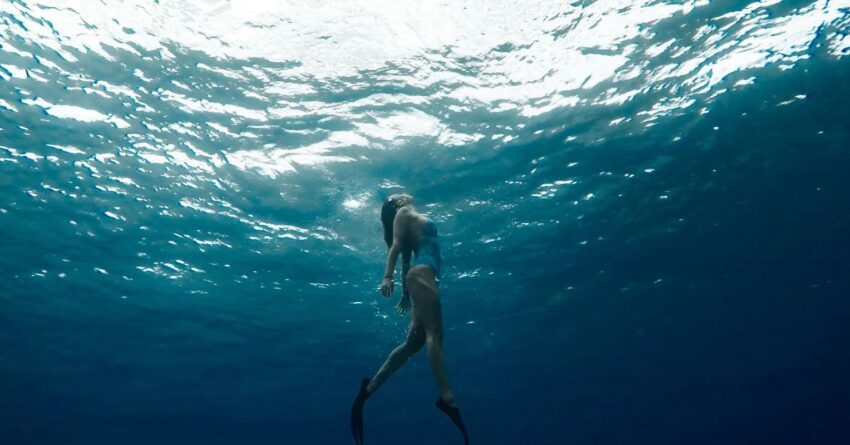Anxiety makes us feel “hot under the collar.” But evolution has provided a mechanism to help cool us down. Enter the diver’s reflex or the mammalian diving response, the body’s physiological response to acute submersion in cold water.
Scientists have long known that aquatic mammals, such as seals, whales, dolphins, and otters can override basic homeostatic reflexes that keep an organism in optimal functioning to survive for long periods under the ocean’s surface. But it wasn’t until the mid-20th century when an Italian Air Force lieutenant named Raimondo Bucher took a bet that he could free-dive 100 feet down and back to the surface without his lungs collapsing, that scientists realized water may have a preservation effect on humans. Research by Per Scholander (1962) confirmed this idea—particularly, that at certain temperatures, water triggers an immediate decrease in heart rate.
If you’ve had the not-so-pleasant of feeling anxious, you’ll know how much anxiety impacts your heart—the pounding, the skipped beats, the elephant’s weight crushing down. This is because your nervous system, an involuntary and reflexive “behind-the-scenes” mechanism that helps to keep humans alive, is stuck on hyper-alert and kicked you out of your “window of tolerance,” which is a person’s optimal arousal zone.
Anxiety activates the sympathetic nervous system. But there is a co-equal branch called the parasympathetic nervous system, or what is often referred to as the “rest and digest,” “feed and breed,” or “tend and befriend” system because it dampens sympathetic responses and keeps the body in a restorative and resting state.
When Cold Water Hits the Face
In 2015, scientists (Godek and Freeman, 2022) found that the diver’s reflex occurs from signals sent by the trigeminal nerves in the face. When cold water hits the face—and it must get just below the eyes and above the cheekbones—a message is sent to the vagus nerve. The vagus nerve, which controls the parasympathetic nervous system, connects the base of the brain to the rest of the body and regulates the heart rate and breathing, among other essential functions. Net: Cold water on our face, short-circuits anxiety.
Activating the diver’s reflex gives us a real-time, sure-fire way to reset an overactive (or hyper-aroused) nervous system—and the good news is that you don’t have to take up free-diving. The next time you feel especially anxious or stressed, try one of these techniques:
- Fill a large bowl with icy water and, while holding your breath, plunge your face in for 30 seconds. (If you are uncomfortable holding your breath that long, either physically or mentally, try one of the alternatives below.)
- Try finishing your next shower with 30 seconds of cold water. If that seems too jarring, you can ease yourself into it by submerging only your face in cold water.
- Place ice cubes in a Ziploc bag and press it against your face while holding your breath for a count of 6 to 8 seconds (Make sure the bag covers your eyes and the space above your cheekbones). Repeat if necessary. A bag of frozen vegetables will also do the trick.
One caveat: Because this technique will slow down your heart rate, anyone with a history of a slow heartbeat should check with their physician before trying.
Humans are hardwired for self-preservation through the nervous system. When this system thinks we’re in danger, it kicks into gear to help us survive. But sometimes our body’s physiological “gas pedal” gets stuck against the floor, and we find ourselves careening down Stress Highway, growing more anxious and irritable. When this happens, just take a detour by engaging the diver’s reflex. In 30 seconds, you’ll be feeling a cool and calming breeze.
This article comes from my upcoming book, Holding Onto Air: The Art and Science of Building a Resilient Spirit.
